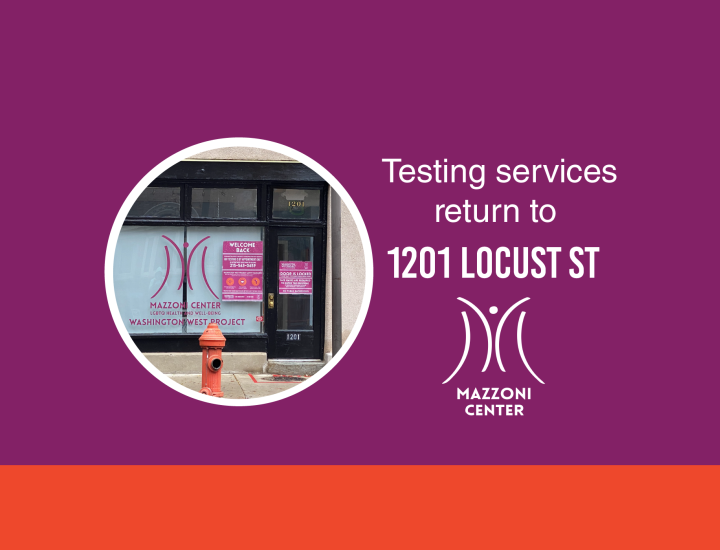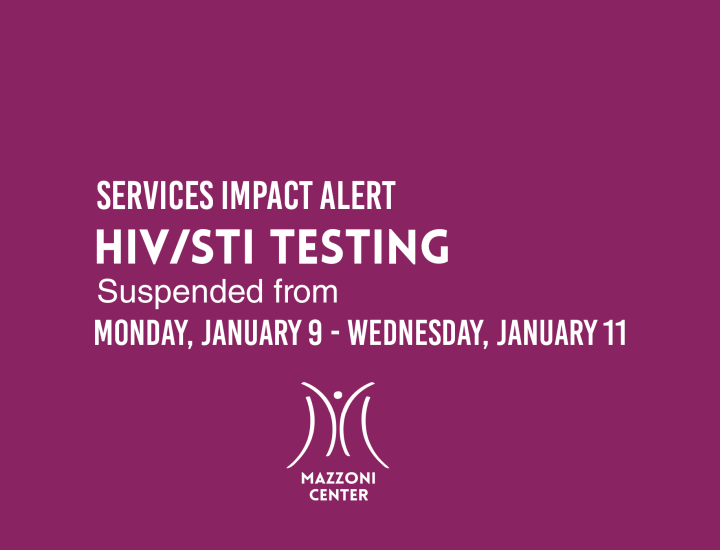We’re #1…and We Don’t Want (or Need) to Be

This article was featured in the Mazzoni Center Monthly Newsletter. Sign up to the newsletter here to see this and many other stories first.
While Philadelphia is accustomed to almosts by our sports teams, there is one ranking where Philly would undoubtedly prefer not to be #1.
According to an study recently published by Innerbody Research that analyzed data recently published by the Centers for Disease Control and Prevention (CDC), Philadelphia has the highest rate of sexually transmitted disease infection of any city in the United States. In Innerbody’s analysis, which evaluated cases of HIV, chlamydia, gonorrhea, and syphilis, Philadelphia data showed an aggregate rate of 1,504 per 100,000, just greater than Memphis, Tennessee; Jackson, Mississippi; and New Orleans, Louisiana. In the most recent prior study, Philadelphia had ranked fifth.
For staff at Mazzoni Center, the largest health and wellness center serving Philadelphia’s LGBTQ community, which sees over 15,000 clients each year with a range of medical services, behavioral health services, legal services, and other social services including food and housing, it need not be this way; and, in a situation that can be addressed by a combination of prevention, testing, and treatment, it all begins with removing the stigma of recognizing the realities of, and even talking about sexually transmitted diseases.
“If you are not comfortable talking with your provider about the sex you are having, it may be time to find a new provider, one that specializes in sexual health,” says Dusty Latimer, a Physician Assistant at Mazzoni Center who has administered thousands of STI tests throughout his career. “You need to be comfortable talking with your medical provider about the sex you’re having. The majority of the people who have sexually transmitted infections don’t know they have them and are spreading them without any knowledge.”
At Mazzoni Center, the services offered include testing and treatment, both at the Center’s main location on Bainbridge Street and at Washington West, Mazzoni Center’s low-threshold sexual health clinic at 12th and Locust Streets. The Washington West location is open six days per week, and its core principle is to serve all clients regardless of financial resources means that no one is turned away from testing or care due to lack of insurance.
Dr. Billie Swiggard, who began her career as a performer on Broadway and made an atypical career change, leaving the theatre for medical school to fight AIDS after witnessing many of her young fellow actors passing away, says that the use of barrier protection, with condoms being the prime example, is the best prevention method for STI transmission. Mazzoni Center distributes over 200,000 “safer sex” kits every year, including condoms and lubricant; and for
anyone who might feel awkward purchasing condoms at a store, free condoms are available in the lobby of both Mazzoni Center locations.
But, while the best, condoms are not the only method of prevention for STI transmission and infection. Dr. Swiggard spoke of the efficacy of PrEP (pre-exposure prophylaxis) for HIV prevention, with injectable PrEP now offered at Mazzoni Center in addition to post-exposure pharmaceuticals, such as Doxy-PEP (doxycycline post-exposure prophylaxis) to prevent other sexually transmitted infections, including chlamydia and syphilis. “In the coming year, Mazzoni Center has identified the need for expanded PrEP uptake and care and prevention for other sexually transmitted diseases,” says Dr. Swiggard. “For now, we have greatly increased the number of appointments both at the main health center and Washington West.” Dr. Swiggard encourages those interested in learning more about pre- and post-exposure prevention methods to contact Mazzoni Center for an appointment.
Latimer adds that, while the dangers of untreated HIV are well known, chlamydia, gonorrhea, and syphilis should not be taken for granted as a mere nuisance. Syphilis, if untreated, can invade the central nervous system and cause irreparable damage, chlamydia can cause major chronic inflammatory issues that can lead to chronic pain or infertility, and gonorrhea can spread into joints and result in infectious arthritis. So whether caring for oneself, or being mindful of not transmitting these infections to others, treating and preventing the spread of STIs can be a life-changing, and sometimes life-saving, matter.
The good news, says Dr. Stacey Trooskin, Mazzoni Center’s Executive Medical Officer and an infectious disease specialist, is with focused attention on prevention, care, and treatment, Philadelphia has every opportunity to lower its rates of infection and drop from being the top-ranking city in terms of STI prevalence. “Through our Washington West and Bainbridge sites, Mazzoni Center has been and continues to be committed to providing STI testing and treatment to our community to help drive down rates of infection," says Dr. Trooskin. “We want the community to know that we are here for everyone – to listen, to educate, to treat, and to care.”
Mazzoni Center’s 1348 Bainbridge Street location can be reached at 215-563-0652 and its Washington Wash location (1201 Locust Street) can be contacted at 215-985-9206.

